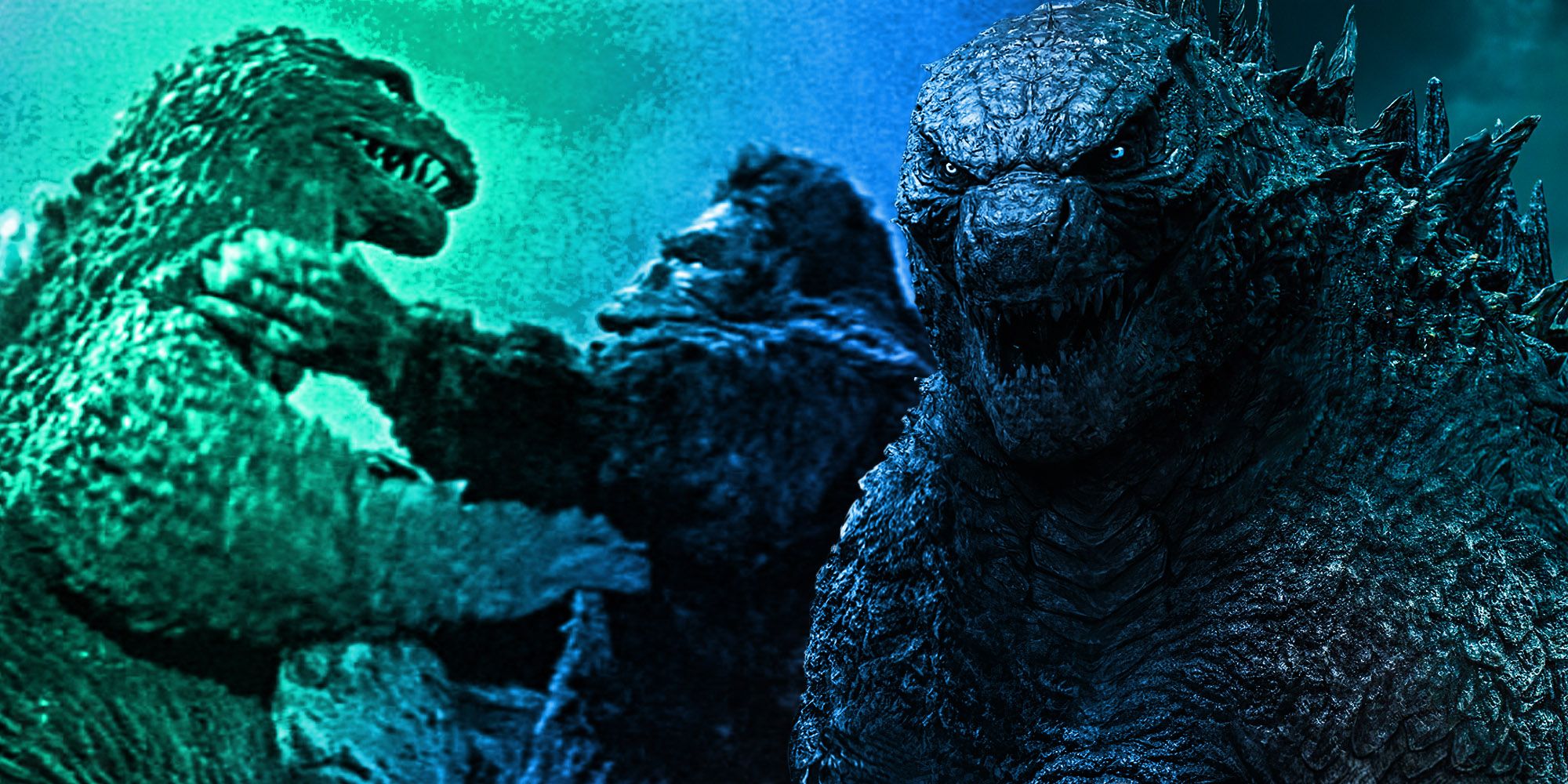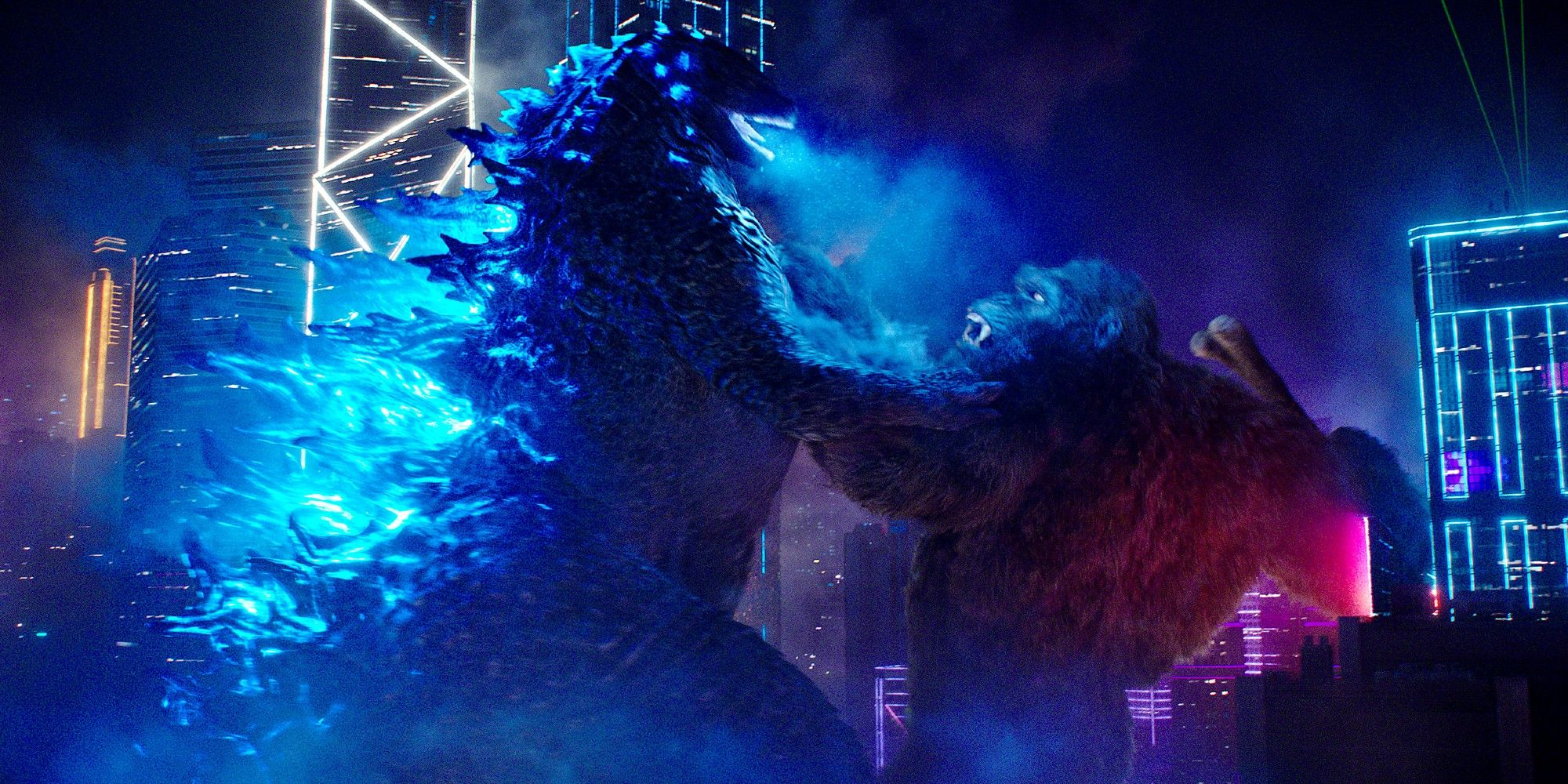How GvK Flips The 1962 Movie's Ending (& Gives Godzilla Payback)

Godzilla vs. Kong is a rematch for the two Titans that flips the ending of 1962's King Kong vs. Godzilla and gives Gojira payback for how that first battle went down. This latest installment of Legendary's MonsterVerse brings Godzilla and Kong together after reintroducing the classic monsters in Godzilla (2014) and Kong: Skull Island. The franchise's third film, Godzilla: King of the Monsters, set the two on a collision course by establishing Godzilla as Earth's apex predator and hinting Kong would be the next to challenge him. The Titans finally come to blows in Godzilla vs. Kong, and how their title match ends is both justice for Godzilla and a fun twist on the 1962 film.
Toho, the studio that created Godzilla, had long wanted to make a King Kong movie and got their chance in 1962 when an American producer was shopping around a script. Originally conceived as King Kong vs. Frankenstein, the project had already changed significantly and would change even more in Toho's hands, as the studio chose their resident kaiju, Godzilla, for Kong's opponent. In the movie's climactic battle, the two monsters fight atop Mount Fuji, destroying the iconic Atami Castle before tumbling over a cliff and falling into the ocean below. Kong is the only one to resurface and is seen swimming away, while Godzilla seemingly vanishes but is suspected to have survived. Though considered by many an ambiguous ending, Toho's official word on the matter is Kong won the fight. Now, 59 years later, Gojira has finally gotten his revenge as Godzilla vs. Kong flips the tables with an ending that also cleverly pays homage to the 1962 original.
In Godzilla vs. Kong, the Titans fight on two different occasions - once atop a battlecruiser and again in Hong Kong - and in both fights, Godzilla comes out the decisive winner. There's no ambiguity to Godzilla vs. Kong's ending and the movie flips the outcome from King Kong vs. Godzilla to drive that point home. After soundly defeating Mechagodzilla, Kong and Godzilla momentarily square off again, but rather than engage in a third round the ape drops his axe. Godzilla, clearly taking this as an act of submission, turns and swims away, retaining his alpha status and title as King of the Monsters. For his part, Kong doesn't then vanish on the spot, but he does disappear from the surface to reign over the Hollow Earth.

Giving Kong the win (not to mention top billing) back in 1962's King Kong vs. Godzilla came about for a few reasons. For one, Godzilla was still considered a villainous character, having only appeared in two films – Godzilla (1954) and Godzilla Raids Again – in which he menaced rather than saved humanity. Kong, on the other hand, wasn't necessarily a hero, but he was at least portrayed sympathetically in both King Kong (1933) and its sequel, Son of Kong. King Kong was also thought to be a larger draw; even those who worked on the Godzilla movies, including legendary effects director Eiji Tsuburaya, were big fans since many had been inspired by the groundbreaking 1933 movie. Altogether, in 1962, King Kong was a bigger name than Godzilla and it would be years before audiences grew accustomed to seeing the giant lizard as more than a threat of disaster.
King Kong vs. Godzilla was a smash hit for Toho and it revived the Godzilla franchise, which had lain dormant since the middling success of Godzilla Raids Again seven years earlier. Following this, Godzilla would go on to star in over 30 Toho films, becoming an occasional hero and a global superstar. Meanwhile, Kong's status has somewhat diminished, having not seen nearly the same big-screen success in the years since. As such, when it came time for Legendary to bring the two giants together again, the outcome of their rematch needed to reflect this change in status. Now, Godzilla is the winner and the headliner. Still, Kong receives an ending that befits his status as a king among monsters, just not the King of Monsters. Godzilla has rightfully earned that title not just in the years since 1962, but within the MonsterVerse, and Godzilla vs. Kong honors both the on and off-screen history that led this.
from ScreenRant - Feed
